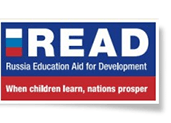
A portion of the global work program was dedicated to reviews and research on key topics and issues in the area of student assessment. As part of this work stream, the World Bank Education Note, “Measuring Learning – How Effective Student Assessment Systems Can Help Achieve Learning for All,” and the READ Working Paper, “Review of World Bank Support for Student Assessment Activities in Client Countries, 1998–2009,” were published. Other work included a review by the Inter-American Dialogue of learning assessment systems in Latin America. The findings were summarized in the 2015 report, “What has Happened with Learning Assessment in Latin America? Lessons learned over the last decade”. The report examines changes in assessment systems in Latin America through an analysis of 1) institutional and organizational frameworks; 2) the dissemination and uses of assessment information by authorities, school officials and teachers, families and civil society; and 3) participation in international large-scale assessments.
Two other reports were published in partnership with the Organization for Economic Cooperation and Development (OECD) as part of their PISA (Program for International Student Assessment) for Development initiative. The first of these reports, “Review of Component Skills Assessed and Contextual Data Collection Used in Relevant International Assessments”, looks at the similarities and differences among existing international, regional, and household-based large-scale assessment programs. The second report, “The Experience of Middle-Income Countries Participating in PISA, 2000-2015”, analyzes the experiences of non-OECD countries, particularly low- and lower-middle income countries, in PISA.
Beginning in 2009, and with the ongoing support of the READ Trust Fund, the World Bank and the Governing Board of OECD’s PISA have been working together to find ways to adapt the PISA tests so that low-income countries can more readily benefit from them. As a result of this collaboration, a new reading component skills assessment was developed and made available as an international option for the PISA 2012 survey, of which both Poland and Peru were able to avail. In 2013, OECD announced a new initiative – PISA for Development. Through this initiative, OECD is piloting a modified version of the current PISA, one in which certain enhancements have been made for the developing country context. After initial discussions, six countries were selected to participate in the pilot: Cambodia, Ecuador, Guatemala, Paraguay, Senegal, and Zambia. READ Trust Fund support was used to finance a number of a key activities to launch the initiative, including hosting technical workshops, conducting capacity needs analyses and developing capacity building plans for participating countries, and producing two high-level reports.
More information is here: http://www.oecd.org/pisa/pisa-for-development/






